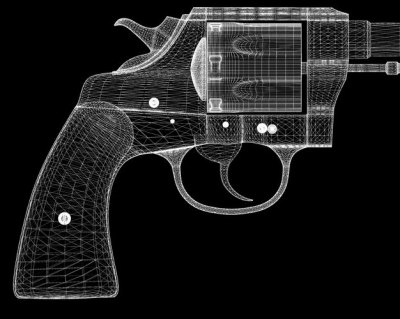The Charleston, S.C., massacre:
Rebel flag may go, but guns stay

They've vowed to take down the rebel flag, but will South Carolina politicians tackle gun laws?
Dylann Roof is charged with using a gun to kill members of a Bible study group at the Emanuel African Methodist Episcopal Church. Victims included the Rev. Clementa Pinckney, 41, a state senator, and eight others ranging in age from 26 to 87. The New York Times reported that Roof had a .45-caliber gun with him when he was arrested April 18.
Soon after, attention shifted to pictures of Roof holding the rebel flag. One of his friends told CNN that the 21-year-old white supremacist wanted to start a “race war.” (His friends didn’t take him seriously.) Politicians then focused on taking down a rebel flag flying behind a Confederate monument on the Statehouse grounds.
But beyond the Confederate flag is an issue that recurs each time someone walks into a crowded room or event and starts shooting: gun laws.
South Carolina was one of 27 states to get an F for its gun laws in an evaluation by the Law Center to Prevent Gun Violence. The center ranked South Carolina 34th on its 2014 Gun Laws Score Card, noting that the state had actually weakened gun laws by “allowing guns in bars and loosening restrictions on guns in cars.”
The state also “does not require background checks on private sales, prohibit assault weapons, require reporting of mental health information or allow law enforcement the discretion to deny concealed handgun permits.”
South Carolina also doesn’t allow local governments to regulate firearms or ammunition, impose a waiting period before buying a gun or limit the number of guns that can be purchased at one time.
Even so, the center points out that 99 laws strengthening gun regulations have passed in 37 states since December 2012 (the Sandy Hook Elementary School massacre in Connecticut), and 10 states have made major overhauls to their gun laws.
Attempts to change gun laws meet with stiff opposition from gun rights activists, who point to the Constitution’s second amendment as providing a guarantee for the right to own firearms:
“A well regulated Militia, being necessary to the security of a free State, the right of the people to keep and bear Arms, shall not be infringed.”
The amendment’s meaning today was explained in a 2008 Supreme Court decision, which found that “The Second Amendment protects an individual right to possess a firearm unconnected with service in a militia, and to use that arm for traditionally lawful purposes, such as self-defense within the home.”
But the court also found that the right to own a gun is not unlimited: "The Court’s opinion should not be taken to cast doubt on longstanding prohibitions on the possession of firearms by felons and the mentally ill, or laws forbidding the carrying of firearms in sensitive places such as schools and government buildings, or laws imposing conditions and qualifications on the commercial sale of arms.”
Related:
Sandy Hook case: History of a war weapon
If you would like to comment, contact StudyHall.Rocks or like us on Facebook and tell us what you think.

